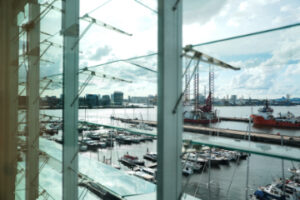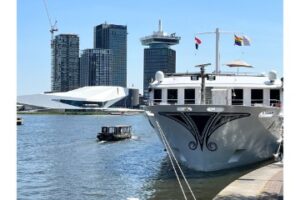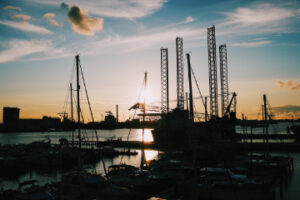
How does prejudgment attachment work in the Netherlands?
Conservatory attachment (“conservatoir beslag”) is a powerful preventive tool under Dutch law. It allows creditors to temporarily block a debtor’s assets before a court judgment.

Transport and logistics play an important role in the distribution process of products. Goods are imported and exported by air, sea and land. The Netherlands, often lauded for its efficient and well-developed transport system, has a comprehensive set of laws and regulations governing its various modes of transportation. Our Dutch transport lawyers in the Netherlands understand the challenges within the logistics chain. When doing business both nationally and internationally, agreements must be clearly laid out. What are the costs and risks in international transactions between buyer and seller in relation to transport, insurance, permits and customs formalities? Transportation law in the Netherlands can be complex, making it advisable to get proper advice. Our Dutch transportation lawyers in the Netherlands will be happy to advise you on these matters.
Martin Krüger
Remko Roosjen
Puck Hoendervanger
Puck Hoendervanger

Conservatory attachment (“conservatoir beslag”) is a powerful preventive tool under Dutch law. It allows creditors to temporarily block a debtor’s assets before a court judgment.

What Constitutes a Legal Claim under Dutch law? Under the Dutch Civil Code (Burgerlijk Wetboek), individuals and entities may hold claims against one another, referred

Contract Law in the Netherlands: Legal Protection Against Trade Barriers Under Dutch law, legal protection against trade barriers is addressed through a combination of civil,
Good commercial agreements are essential. Particularly when you operate internationally and do not know your business partner well. How do you ensure that your rights are adequately safeguarded and that you have access to redress? Our lawyers will be happy to assist you in drawing up framework agreements, payment conditions, the incorporation of security in your contracts (such as retention of title), delivery conditions (such as appropriate Incoterms) and drawing up a conclusive set of sales and delivery conditions, or purchase conditions. If you wish to terminate or dissolve a commercial agreement, our Dutch lawyers in the Netherlands will be happy to assist you. Not all transports run smoothly. If there is a kink in the cable somewhere, the damage can be enormous. Our lawyers respond quickly, have a large international network at their disposal, and are ready to assist you immediately.
Imagine the risk of bankruptcy or a business relationship that is damaged because you cannot deliver anymore. Possibilities for redress can become immediately important with questions such as: whether you can still recover your goods, whether you are still the owner. If you can still seize your property in the Netherlands to build in as many securities as possible in an uncertain period of time? Our lawyers are used to answering these questions and have a sound knowledge of the Dutch procedural law.
When something is wrong due to transport, discussions often arise about liability for consequential damage, such as loss of profit. This is due to products not completely or not properly arriving at their destination. This raises questions about the applicable general terms and condition and, which conditions take precedence (purchase conditions or conditions of sale)? Also, who has to prove the extent of the damage?MAAK Advocaten has a great deal of experience in such matters and understands the interests of both parties better than anyone else. Transport law in the Netherlands is governed by a myriad of laws, regulations, and guidelines, which are shaped by both national and European Union (EU) legislation. The primary national legislation governing transport law is the Transport Act (Wet personenvervoer) of 2000, which outlines the general rules and licensing requirements for public transport operators. Several key players are involved in formulating and enforcing transport laws and regulations. These include: the Ministry of Infrastructure and Water Management (IenW): responsible for creating national transport policies and overseeing their implementation; the Human Environment and Transport Inspectorate (ILT): an executive agency under IenW, responsible for enforcing compliance with transport regulations and maintaining safety standards; the Netherlands Vehicle Authority (RDW): Regulates vehicle registration, licensing, and roadworthiness testing. The Consumer and Market Authority (ACM): ensures fair competition in the transport sector by monitoring and regulating market practices.
“Maak has a great team
that helped us very well and
are really thinking with you on
what is possible. Would for sure
chose them again in the future.”
P. Evers.